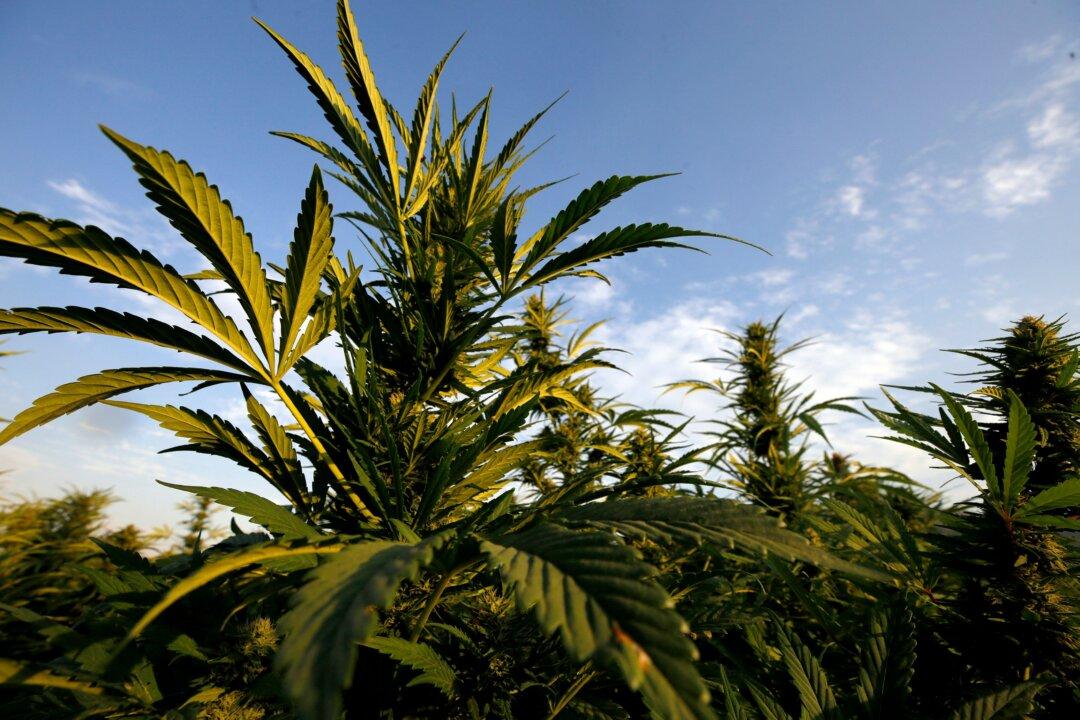A hearing on rescheduling marijuana at the federal level will be held after the election near the end of the year, according to the U.S. Drug Enforcement Administration (DEA).
DEA to Hold Hearing on Reclassifying Marijuana as Drug With Lower Risk of Abuse
The proposal to be discussed would move marijuana from a Schedule I substance, defined as high risk of abuse, to a Schedule III, with some risk of abuse.

Marijuana plants in Poncitlan, Jalisco state, Mexico, on April 14, 2023. Ulises Ruiz/AFP via Getty Images




